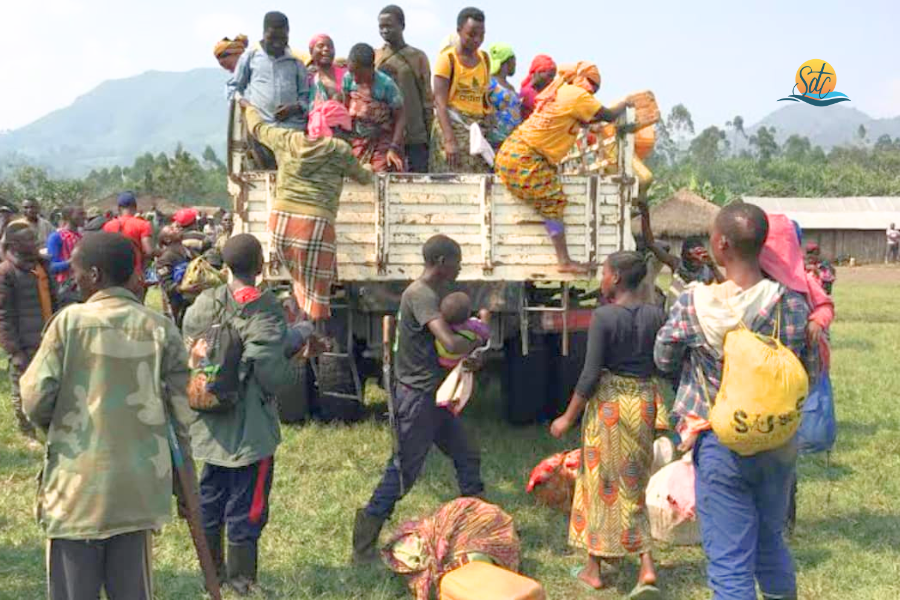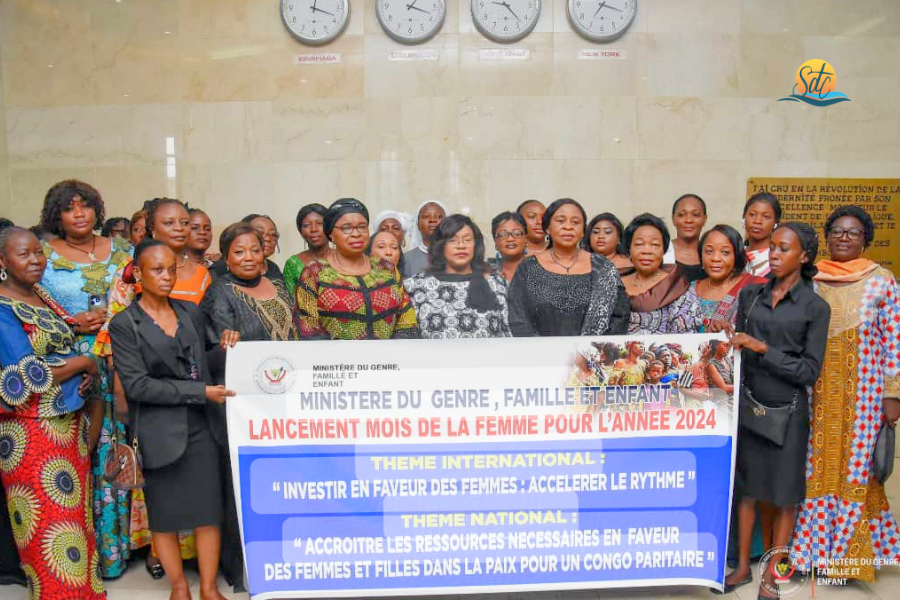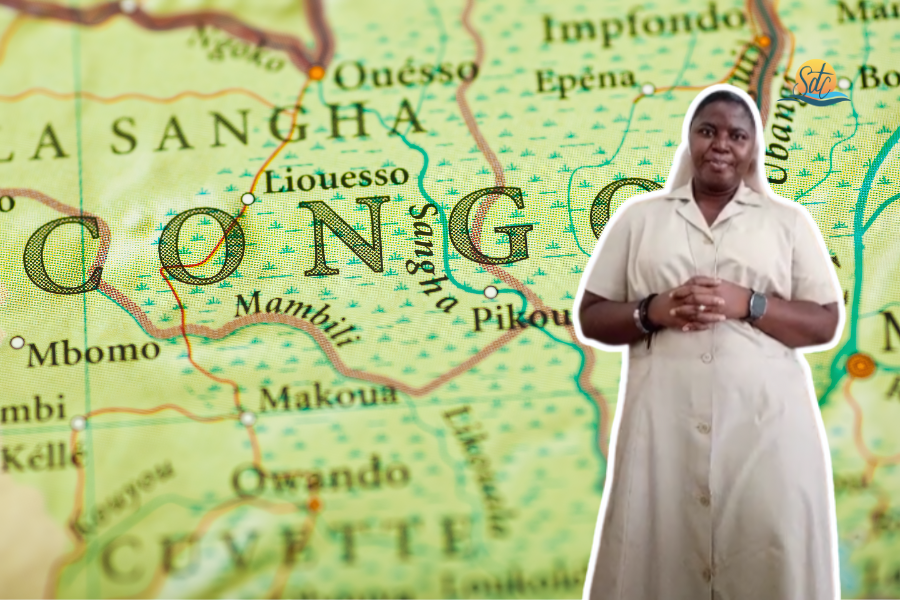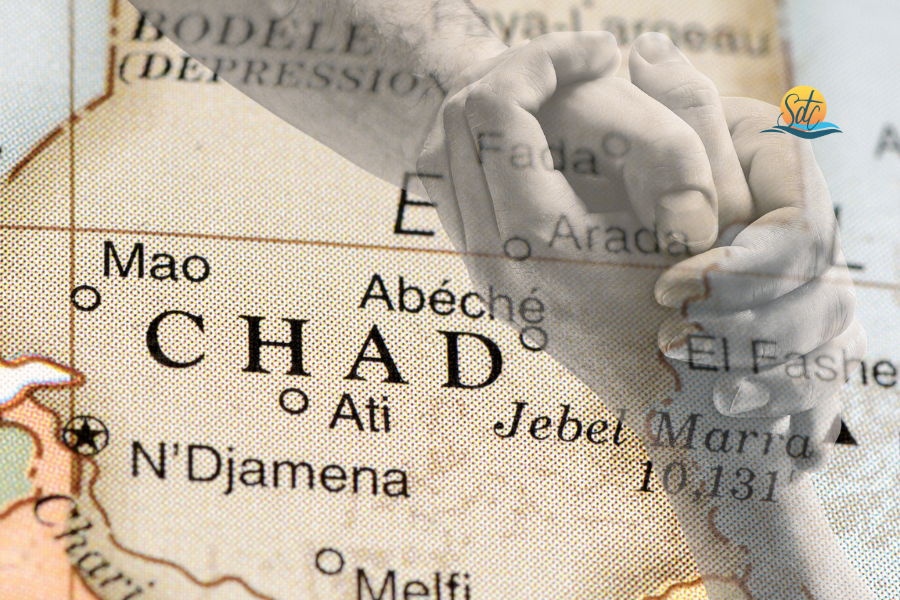We caught up with sister Chika in Congo for a first-hand account from an unstable, complicated country in which several armed groups are active and whose fighting has intensified in recent weeks.
With over 100 million inhabitants, it is an extremely poor country. Continuous conflicts over the last 30 years have killed more than six million people.
The Democratic Republic of Congo is among the countries with the most internally displaced people in the world: from March 2022 until today, almost seven million people have had to leave their homes.

So the 8 March 2024, reports sister Chika, “cannot be celebrated as usual. Dressed in black, in the rhythm of mourning, with lit torches, women will march in front of government offices all over Congo“.
“Good morning, I am sister Chika, a Sister of Charity on mission in the Democratic Republic of Congo. I would like to talk to you about the situation on Women’s Rights Day. Here in Congo, we do not celebrate this holiday or this day as usual. It is usually so festive. Women wear the typical party dress. There are parades and dances. You know we are a country of music and dance. We are always happy here.
But this year, the Minister for Gender, Families and Children has declared that there will be no celebration, which means that we will celebrate to the tune of mourning. All Congolese women will be dressed in black with lit candles and will march in front of all government offices in the country, in other words in every corner of Congo. There will be no celebration. It is to support our brothers and sisters who are suffering in the East of the country.

As you know, here in Congo, for more than 20 years, we have been in a war situation where people are constantly being slaughtered, women raped and children torn from their families. This year, therefore, we will -celebrate- by marching together for peace and rights’.
This was at the national level. Now, at the parish level, in our parish, Saint Mary Queen of Apostles, where we pray the daily Breviary together, we will do something in honour of women, but not on the 8th, but on the 10th and there will be a mass in honour of women. After the mass, there will be a talk given by a mother and after this talk, the priests will play a game among themselves in honour of women. This is more or less the way 8 March is spent in our country, in Congo.
Thank you for supporting our marches”.







